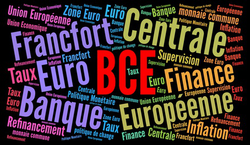Food for thoughts
Thesaurus : Doctrine
Référence complète : Lalande, P.-A., Le pouvoir d’injonction au service de la réparation du préjudice écologique : une mise en œuvre de l’office du juge administratif en matière climatique, Actu-Juridique, 9 décembre 2021.
____
_____
Thesaurus : Doctrine

► Référence complète : P.-Y. Gautier, « Contre le droit illimité à la preuve devant les autorités administratives indépendantes », Mélanges en l'honneur du Professeur Claude Lucas de Leyssac, LexisNexis, 2018, p.181-193.
____
📘 Lire une présentation générale de l'ouvrage dans lequel l'article est publié
Thesaurus : Doctrine

Référence complète : Terré, F., Concurrence et proportionnalité, in Parléani, G. (coord.), Mélanges en l'honneur du Professeur Claude Lucas de Leyssac, LexisNexis, novembre 2018, pp.467-471.
____
Lire une présentation générale des Mélanges dans lesquels l'article a été publié.
____
Teachings : Droit de la régulation bancaire et financière - semestre 2022

Le plan des 6 cours d'amphi est en principe actualisé chaque semaine au fur et à mesure que les cours se déroulent en amphi.
S'il s'avère que la crise sanitaire conduit à ramasser la mise à disposition de l'ensemble du cours en début de semestre, cette actualisation ne sera pas possible.
Cela sera alors compensé par l'envoi en courriel tout au long du semestre d'actualités commentées liées à la matière.
____
Voir le plan ci-dessous⤵
Thesaurus : Doctrine

► Full Reference: R. Sève, "Compliance Obligation and changes in Sovereignty and Citizenship", in M.-A. Frison-Roche (ed.), Compliance Obligation, Journal of Regulation & Compliance (JoRC) and Bruylant, "Compliance & Regulation" Serie, to be published
____
📘read a general presentation of the book, Compliance Obligation, in which this article is published
____
► Summary of the article (done by the Journal of Regulation & Compliance - JoRC):
The contribution describes "les changements de philosophie du droit que la notion de compliance peut impliquer par rapport à la représentation moderne de l’Etat assurant l’effectivité des lois issues de la volonté générale, dans le respect des libertés fondamentales qui constituent l’essence du sujet de droit." ("the changes in legal philosophy that the notion of Compliance may imply in relation to the modern representation of the State ensuring the effectiveness of laws resulting from the general will, while respecting the fundamental freedoms that constitute the essence of the subject of law").
The contributor believes that the definition of Compliance is due to authors who « jouer un rôle d’éclairage et de structuration d’un vaste ensemble d’idées et de phénomènes précédemment envisagés de manière disjointe. Pour ce qui nous occupe, c’est sûrement le cas de la théorie de la compliance, développée en France par Marie-Anne Frison-Roche dans la lignée de grands économistes (Jean-Jacques Laffont, Jean Tirole) et dont la première forme résidait dans les travaux bien connus de la Professeure sur le droit de la régulation. » ( "play a role in illuminating and structuring a vast set of ideas and phenomena previously considered in a disjointed manner. For our purposes, this is certainly the case with the theory of Compliance, developed in France by Marie-Anne Frison-Roche in the tradition of great economists (Jean-Jacques Laffont, Jean Tirole) and whose first form was in her well-known work on Regulatory Law").
Drawing on the Principles of the Law of the American Law Institute, which considers compliance to be a "set of rules, principles, controls, authorities, offices and practices designed to ensure that an organisation conforms to external and internal norms", he stresses that Compliance thus appears to be a neutral mechanism aimed at efficiency through a move towards Ex Ante. But he stresses that the novelty lies in the fact that it is aimed 'only' at future events, by 'refounding' and 'monumentalising' the matter through the notion of 'monumental goals' conceived by Marie-Anne Frison-Roche, giving rise to a new jus comune. Thus, "la compliance c’est l’idée permanente du droit appliquée à de nouveaux contextes et défis." ("Compliance is the permanent idea of Law applied to new contexts and challenges").
So it's not a question of making budget savings, but rather of continuing to apply the philosophy of the Social Contract to complex issues, particularly environmental issues.
This renews the place occupied by the Citizen, who appears not only as an individual, as in the classical Greek concept and that of Rousseau, but also through entities such as NGOs, while large companies, because they alone have the means to pursue the Compliance Monumental Goals, would be like "super-citizens", something that the digital space is beginning to experience, at the risk of the individuals themselves disappearing as a result of "surveillance capitalism". But in the same way that thinking about the Social Contract is linked to thinking about capitalism, Compliance is part of a logical historical extension, without any fundamental break: "C’est le développement et la complexité du capitalisme qui forcent à introduire dans les entités privées des mécanismes procéduraux d’essence bureaucratique, pour discipliner les salariés, contenir les critiques internes et externes, soutenir les managers en place" ("It is the development and complexity of capitalism that forces us to introduce procedural mechanisms of a bureaucratic nature into private entities, in order to discipline employees, contain internal and external criticism, and support the managers in place") by forcing them to justify remuneration, benefits, and so on.
Furthermore, in the words of the author, "Avec les buts monumentaux, - la prise en compte des effets lointains, diffus, agrégés par delà les frontières, de l’intérêt des générations futures, de tous les êtres vivants - , on passe, pour ainsi dire, à une dimension industrielle de l’éthique, que seuls de vastes systèmes de traitement de l’information permettent d’envisager effectivement." ("With the Monumental Goals - taking into account the distant, diffuse effects, aggregated across borders, the interests of future generations, of all living beings - we move, so to speak, to an industrial dimension of ethics, which only vast information processing systems can effectively envisage").
This is how we can find a division between artificial intelligence and human beings in organisations, particularly companies, or in decision-making processes.
In the same way, individual freedom does not disappear with Compliance, because it is precisely one of its monumental goals to enable individuals to make choices in a complex environment, particularly in the digital space where the democratic system is now at stake, while technical mechanisms such as early warning will revive the right to civil disobedience, invalidating the complaint of "surveillance capitalism".
The author concludes that the stakes are so high that Compliance, which has already overcome the distinctions between Private and Public Law and between national and international law, must also overcome the distinction between Information and secrecy, particularly in view of cyber-risks, which requires the State to develop and implement non-public Compliance strategies to safeguard the future.
____
🦉This article is available in full text to those registered for Professor Marie-Anne Frison-Roche's courses
________
Teachings : Compliance Law

♾️ follow Marie-Anne Frison-Roche on LinkedIn
♾️subscribe to the Newsletter MAFR Regulation, Compliance, Law
____
This general bibliography brings together some general references, which overlap or cross over the more specific bibliographies on Compliance, through different subjects or branches of Law, in French Law or in foreign and supra-national Law having a direct influence, so that one can understand what results in nation law.
It is composed of doctrinal documents (books and articles), legislative or regulatory texts applicable in France and other countries (and, where applicable, draft laws or regulations), as well as documents of gray literature .
It may be relevant to cross this bibliography with the broader Bibliography on the General Regulation Law, or with the more focused Bibliography on the Law of Banking and Financial Regulation.
Thesaurus : Doctrine

► Full Reference: S. Pottier, "In Favour of European Compliance, a Vehicle of Economic and Political Assertion", in M.-A. Frison-Roche (ed.), Compliance Monumental Goals, Journal of Regulation & Compliance (JoRC) and Bruylant, "Compliance & Regulation" Serie, 2023, pp. 459-468
____
📘read a general presentation of the book, Compliance Monumental Goals, in which this article is published
____
► Summary of the article (donne by the Journal of Regulation & Compliance - JoRC): Today's monumental goals, particularly environmental and climatic ones, are of a financial magnitude that we had not imagined but the essential stake is rather in the way of using these funds, that is to determine the rules which, to be effective and fair, should be global. The challenge is therefore to design these rules and organize the necessary alliance between States and companies.
It is no longer disputed today that the concern for these monumental goals and the concern for profitability of investments go hand in hand, the most conservative financiers admitting, moreover, that concern for others and for the future must be taken into account, the ESG rating and the "green bonds" expressing it.
Companies are increasingly made more responsible, in particular by the reputational pressure exerted by the request made to actively participate in the achievement of these goals, this insertion in the very heart of the management of the company showing the link between compliance and the trust of which companies need, CSR also being based on this relationship, the whole placing the company upstream, to prevent criticism, even if they are unjustified. All governance is therefore impacted by compliance requirements, in particular transparency.
Despite the global nature of the topic and the techniques, Europe has a great specificity, where its sovereignty is at stake and which Europe must defend and develop, as a tool for risk management and the development of its industry. Less mechanical than the tick the box, Europe makes the spirit of Compliance prevail, where the competitiveness of companies is deployed in a link with States to achieve substantial goals. For this, it is imperative to strengthen the European conception of compliance standards and to use the model. The European model of compliance arouses a lot of interest. The duty of vigilance is a very good example. It is of primary interest to explain it, develop it and promote it beyond Europe.
________
Teachings : Generall Regulatory law

Retourner à la présentation générale du Cours.
Cette bibliographie générale rassemble quelques références générales, qui se superposent ou croisent les bibliographies plus spécifiques sur :
- Doctrine (par ordre alphabétique), la présentation distinguant quelques ouvrages généraux avant de répertorie des études pertinentes pour comprendre le "Droit commun de la Régulation"
- Textes de droit international, textes de systèmes juridiques étrangers,textes de l'Union européennes, textes de droit français
- Littérature grise
Thesaurus : Doctrine

► Full Reference: Deffains, B., Compliance and International Competitiveness, in Frison-Roche, M.-A. (ed.), Compliance Monumental Goals, series "Régulations & Compliance", Journal of Regulation & Compliance (JoRC) and Bruylant, to be published.
____
► Article Summary: Compliance, which can be defined first and foremost as obedience to the law, is an issue for the company in that it can choose as a strategy to do or not to do it, depending on what such a choice costs or brings in. This same choice of understanding is offered to the author of the norm, the legislator or the judge, or even the entire legal system, in that it makes regulation more or less costly, and compliance with it, for companies. Thus, when the so-called “Vigilance” law was adopted in 2017, the French Parliament was criticized for dealing a blow to the “international competitiveness” of French companies. Today, it is on its model that the European Parliament is asking the European Commission to design what could be a European Directive. The extraterritoriality attached to the Compliance Law, often presented as an economic aggression, is however a consubstantial effect, to its will to claim to protect beyond the borders. This brings us back to a classic question in Economics: what is the price of virtue?
In order to fuel a debate that began several centuries ago, it is first of all on the side of the stakes that the analysis must be carried out. Indeed, the Law of Compliance, which is not only situated in Ex Ante, to prevent, detect, remedy, reorganize the future, but also claims to face more “monumental” difficulties than the classical Law. And it is specifically by examining the new instruments that the Law has put in place and offered or imposed on companies that the question of international competitiveness must be examined. The mechanisms of information, secrecy, accountability or responsibility, which have a great effect on the international competitiveness of companies and systems, are being changed and the measure of this is not yet taken.
____
________
Thesaurus : Doctrine
► Référence complète : Association des professionnels du contentieux économique et financier (APCEF), La réparation du préjudice économique et financier par les juridictions pénales, 2019.
____
________
Thesaurus : Doctrine
Référence complète : Boy, , "Réflexion sur le "droit de la régulation". A propos du texte de Marie-Anne Frison-Roche", D., chron., 2001, p.3031 et s.
____
Thesaurus : Doctrine

► Full Reference: M. Torre-Schaub, "La compliance environnementale et climatique" ("Environmental and Climate Compliance"), in M.-A. Frison-Roche (dir.), L'Obligation de Compliance, Journal of Regulation & Compliance (JoRC) and Dalloz, coll. "Régulations & Compliance", to be published
____
📕lire une présentation générale de l'ouvrage, L'Obligation de Compliance, dans lequel cet article est publié
____
► Summary of this contribution (done by the Journal of Regulation & Compliance) : The author starts from the fact that Compliance Law, in that it is not limited to conformity process, and Environmental Law are complementary, both based above all on the prevention of risks and harmful behaviour, environmental crises and the right to a healthy environment involving the strengthening of Environmental Vigilance. It is all the more important to do this because definitions remain imprecise, not least those of Environment and Climate, which are diffuse concepts.
Firstly, the contribution sets out the purpose of Environmental Compliance, which is to ensure that companies are vigilant with regard to all kinds of risks: they put in place and follow a series of processes to obtain "progress" in accordance with a standard of "reasonable vigilance". This requires them to go beyond mere conformity and encourages them to develop their own soft law tools within a framework of information and transparency, so that the climate system itself benefits in accordance with its own objectives.
Then the author stresses the preventive nature of Environmental Vigilance mechanisms, which go beyond providing Information to managing risks upstream, in particular through the vigilance plan, which may be unified or drawn up risk by risk, and which must be adapted to the company, particularly in the risk mapping drawn up, with assessment being carried out on a case-by-case basis.
Lastly, in the light of recent French case law, the author describes the implementation of the system, which may bring the parties before the Tribunal judiciaire de Paris (Paris Court of First Instance) and then the specialised chamber of the Paris Court of Appeal. The author believes that judges must clarify the obligation of Environmental Vigilance so that companies can adjust to it, and these 2 courts are in the process of doing so.
____
🦉This article is available in full text to those registered for Professor Marie-Anne Frison-Roche's courses
________
Compliance and Regulation Law bilingual Dictionnary

The term "breach" is new in Law. In the legal order, the term "fault" is that which is retained to designate the behavior of a person who deviates from a rule and must be sanctioned, because by this act he has manifested a fraudulent intention which may is reproached to him. But the legal notion of fault, which was central in the classic Law of civil liability and was essential in criminal liability Law has the major drawback of calling for proof: that of the intention to "do wrong". This seems all the less adequate when it comes to assessing the behavior of organizations, such as companies, whose behavior and power must be controlled more than the faulty behavior of their leaders sanctioned.
This is why both to lighten the burden of proof concerning natural persons, in particular those with the power and the function of deciding for others (managers, "senior executives") and to better correspond to the distribution of the power of The action, which is now held by organizations, in particular companies, are "failures" and no longer faults or negligence which constitute the triggering events triggering their liability or justifying repression.
It is more particularly an administrative repression, the end of which is not to sanction misconduct but to effectively protect the regulated sectors. The sanction for breaches is therefore both easier, because it is always necessary to prove the intention, and more violent, because the sanctions attached can relate to a share of the profits withdrawn, to a share of the turnover. business of the operator or can take the form of commitments by the operator for the future, a very restrictive and new form of sanction that the compliance technique has inserted into the law.
Thus the breach can be defined as a behavior, even an organization which is away from the behavior or the situation that the author of a text has posed as being that which he posits as adequate. This definition, which is at the same time broad, abstract, teleological and prescription, which makes it possible to apprehend not only behaviors but also structures, makes the sanction of breaches a daily tool of Regulatory Law.
Compliance and Regulation Law bilingual Dictionnary

The procedural guarantees from which the person benefits are mainly the right of action, the rights of defense and the benefit of the adversarial principle.
While the rights of the defense are subjective rights which are advantages given to the person at risk of having his situation affected by the decision that the body which is formally or functionally legally qualified as a "tribunal", may take, the adversarial principle is rather a principle of organization of the procedure, from which the person can benefit.
This principle, as the term indicates, is - as are the rights of the defense - of such a nature as to generate all the technical mechanisms which serve it, including in the silence of the texts, imply a broad interpretation of these.
The adversarial principle implies that the debate between all the arguments, in particular all the possible interpretations, is possible. It is exceptionally and justified, for example because of urgency or a justified requirement of secrecy (professional secrecy, secrecy of private life, industrial secrecy, defense secrecy, etc.) that the adversarial mechanism is ruled out. , sometimes only for a time (technique of deferred litigation by the admission of the procedure on request).
This participation in the debate must be fully possible for the debater, in particular access to the file, knowledge of the existence of the instance, the intelligibility of the terms of the debate, not only the facts, but also the language (translator, lawyer , intelligibility of the subject), but still discussion on the applicable legal rules). So when the court automatically comes under the rules of Law, it must submit them to adversarial debate before possibly applying them.
The application of the adversarial principle often crosses the rights of the defense, but in that it is linked to the notion of debate, it develops all the more as the procedure is of the adversarial type.
Compliance and Regulation Law bilingual Dictionnary

The Office of Communications (Ofcom) is the UK's communications regulator.
This independent regulator is competent both for television, radio and television services, but also for the post office.
In addition, there are very diverse missions, such as not only the allocation of licenses but also data protection or public policies of diversity and equality.
We can consider that these are the broadest competences that can be conferred on a regulator with regard to "communication" activities
Thesaurus : Soft Law
► Référence complète : Agence française anticorruption (AFA), Guide du contrôle comptable anticorruption, 2022.
____
____
📧 Lire le commentaire fait par Marie-Anne Frison-Roche de ce guide.
_______
Thesaurus : Soft Law
Référence complète : Gauvain, R. et Marleix, O., Rapport d'information sur l'évaluation de l'impact de la loi n° 2016-1691 du 9 décembre 2016 relative à la transparence, à la lutte contre la corruption et à la modernisation de la vie économique, 2021.
____
________
Thesaurus : Doctrine

► Full Reference: Segonds, M., Compliance, Proportionality and Sanction. The example of the sanctions taken by the French Anticorruption Agency, in Frison-Roche, M.-A. (ed.),Compliance Monumental Goals, series "Compliance & Regulation", Journal of Regulation & Compliance (JoRC) and Bruylant, to be published.
___
► Article Summary: Before devoting the developments of his article to the sole perspective of sanctions imposed under "Anti-corruption Compliance", the author recalls in a more general way that, as is the sanction, Compliance is in essence proportional: Proportionality is inherent to Compliance as it conditions any sanction, including a sanction imposed under Compliance.
This link between Proportionality and Compliance has been underlined by the French Anti-Corruption Agency (Agence française anticorruption - AFA) with regard to risk mapping, which must measure risks to arrive at effective and proportional measures. This same spirit of proportionality animates the recommendations of the AFA which are intended to apply according to the size of the company and its concrete organisation. It governs sanctions even more, in that punitive sanctions refer on one hand to Criminal Law, centered on the requirement of proportionality. Punitive sanctions It governs sanctions even more, in that punitive sanctions refer on the other hand to the disciplinary power of the manager who, from other sources of law, must integrate the legal requirement of proportionality when he/she applies external and internal compliance norms.
____
_______
Thesaurus : Doctrine
Référence complète : Queinnec, Y et Constantin, A., Devoir de vigilance. Les organes de gouvernance des entreprises en première ligne, in Le Big Bang des devoirs de vigilance ESG : les nouveaux enjeux de RSE et de droit de l'homme, doss., Revue Lamy Droit des Affaires, n°104, mai 2015, p.68-74.
____
Compliance and Regulation Law bilingual Dictionnary

A Central Bank is for the Law a rather mysterious object.
Despite what some competition authorities have said, it is not an ordinary bank. It is at the root of monetary creation and its primary mission is to fight against inflation, contributing more or less directly and in a more or less independent way according to political and legal systems to the economic policy pursued by governments.
Thus, while central banks all have constitutional status which guarantees autonomy, they have a more limited mission in Europe than in the United States. This is even more evident since monetary cre - ation has been transferred to the European Central Bank (ECB), which makes it even more necessary to interpret what the Central Bank can do, Reminded the Court of Justice of the European Union (CJEU) in 2015 of the ECB's non-conventional monetary policy programs.
The central bankers either directly by a department or indirectly by an independent administrative authority (IAA) backed by them and who, although independent, have no legal personality with regard to them ( for example in the French system concerning the " Autorité de contrôle prudentiel et de resolution - ACPR) exercises regulatory and supervisory powers over the banking and insurance sectors.
As such, they are regulators. When en Europe the power to create money has been taken away from them, passing from the Member States to the European Central Bank (ECB) through the Euro Zone, it is this regulatory and supervisory power which remains their own, their mission being only to participate in the European collective mechanism.
But for exercising its regulatory and supervisory role, the central bankers have considerable powers, including approval, sanction and, since 2013 and 2014, resolution. But in this respect it must be considered that, in particular with regard to the European Convention on Human Rights, central bankers are like courts and in the exercise of numerous powers, procedural guarantees must be conferred on operators who are the object of those powers.
Thesaurus
Référence complète : Grandjean, J.P., rapporteur, Rapport sur l'avocat chargé d'une enquête interne, Conseil de l'Ordre des Avocats, Paris, 8 mars 2016.
Thesaurus : Doctrine
►Référence complète : Galli, M., Une justice pénale propre aux personnes morales : Réflexions sur la convention judiciaire d'intérêt public , Revue de Sciences Criminelle, 2018, pp. 359-385.
____
Compliance and Regulation Law bilingual Dictionnary

In principle, the very mechanism of the market is governed by freedom, the freedoms of the agents themselves - the freedom to undertake and contract - and the competitive freedom that marks the market itself, the convergence of these freedoms allowing the self-regulated functioning of The "market law", namely the massive encounter of offers and demands that generates the right price ("fair price").
But in the case of financial markets, which are regulated markets, "market abuses" are sanctioned at the very heart of regulation. Indeed, the regulation of the financial markets presupposes that the information is distributed there for the benefit of investors, or even other stakeholders, possibly information not exclusively financial. This integrity of the financial markets which, beyond the integrity of information, must achieve transparency, justifies that information is fully and equally shared. That is why those who hold or must hold information that is not shared by others (privileged information) must not use it in the market until they have made it public. Similarly, they should not send bad information to the market. Neither should they manipulate stock market prices.
These sanctions were essentially conceived by the American financial theory, concretized by the American courts, then taken back in Europe. To the extent that they sanction both reproachable behavior and constitute a public policy instrument of direction and protection of markets, the question of cumulation of criminal law and administrative repressive law can only be posed with difficulty in Europe.
Thesaurus : Doctrine
► Référence complète : B. Lecourt, "Des obligations d'information en matière de droit de l'homme et d'environnement au devoir de vigilance", in B. Lecourt (dir.) Lebvre - Dalloz, coll. "Thèmes et commentaires", 2025, pp
____
📗lire une présentation générale de l'ouvrage, Le devoir européen de vigilance, dans lequel cet article est publié
____
🦉Cet article est accessible en texte intégral pour les personnes inscrites aux enseignements de la Professeure Marie-Anne Frison-Roche
________
Thesaurus : Doctrine
► Référence complète : Fr. Berrod, "Introduction au DMA : un esprit pionnier de la régulation des plateformes numériques", Dalloz IP/IT, 2023, pp. 266-271
____
► Résumé de l'article (fait par l'auteur) : "Le Digital Markets Act (DMA) a été proposé en même temps que son jumeau le Digital Service Act et ils ont été négociés en parallèle et stabilisés par la présidence française de l'Union européenne. Il est applicable à partir du 2 mai 2023. Sa négociation fut menée de façon remarquablement rapide (moins de seize mois pour obtenir l'accord politique sur la proposition de la Commission du 15 déc. 2020), si l'on rappelle la difficulté de ces deux textes, tant technique que juridique. Le DMA vient modifier les directives (UE) 2019/1937 et (UE) 2020/1828. Le titre technique choisi reflète l'ambition de ce texte, consacré « aux marchés contestables et équitables dans le secteur numérique ». Nous retracerons dans cette contribution les principaux éléments de compréhension du DMA.".
____
🦉Cet article est accessible en texte intégral pour les personnes inscrites aux enseignements de la Professeure Marie-Anne Frison-Roche
________